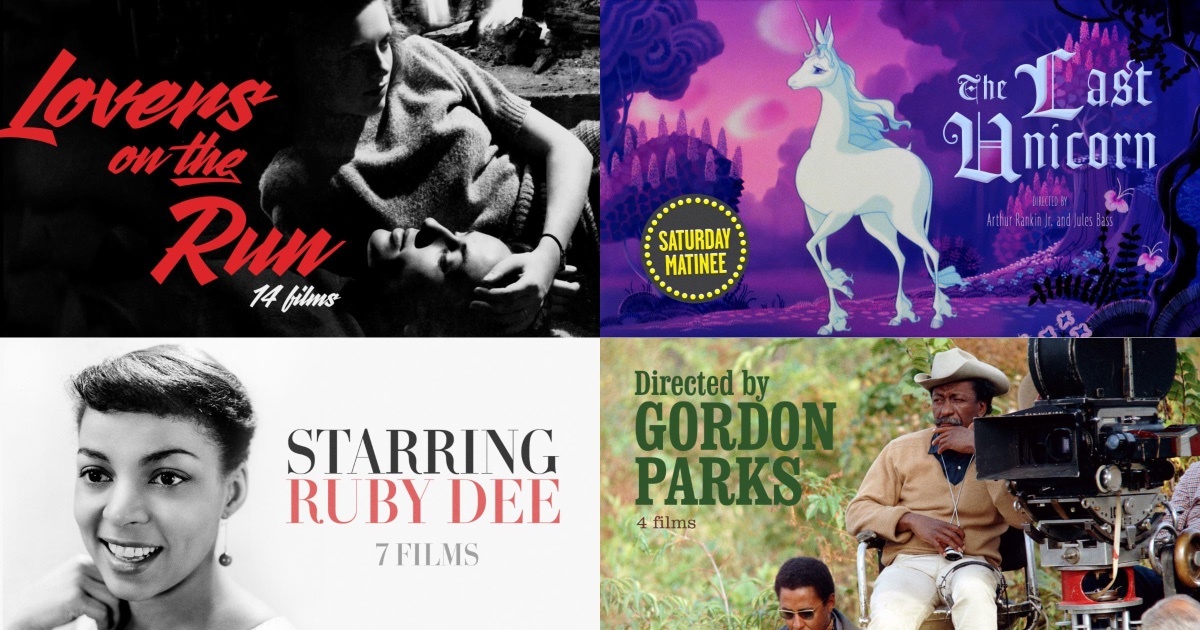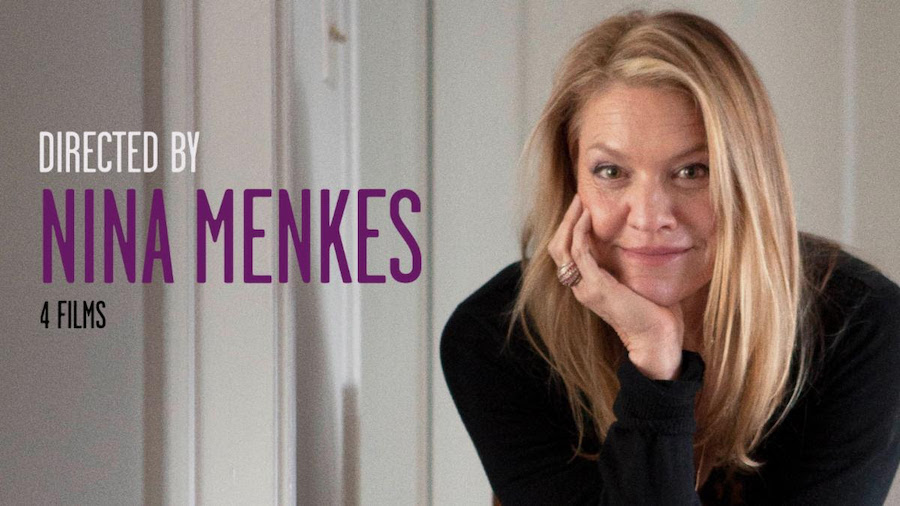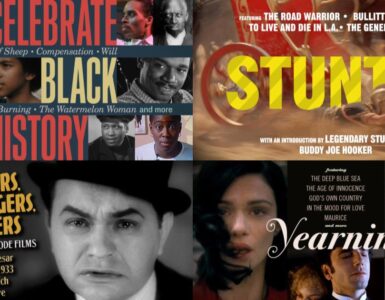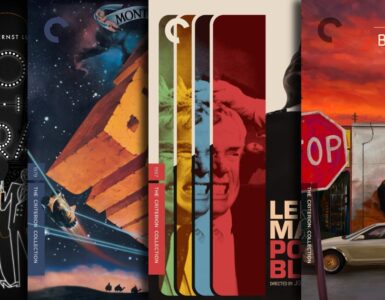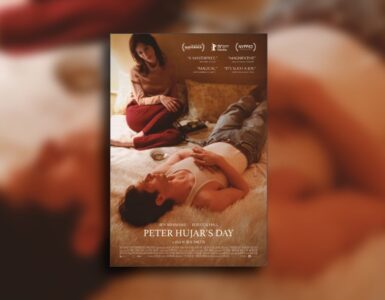Each month, the programmers at the Criterion Channel produce incredible line-ups for their subscribers. For February, the Channel will feature films from Jim Jarmusch, Bill Duke, Madeline Anderson, and more!
Below you’ll find the programming schedule for the month, along with a complete list of titles that Criterion has in store for us. Don’t forget to check the Criterion Channel’s main page regularly though, as they occasionally will drop surprises that aren’t included in the official press release.
Don’t subscribe yet? Start a 14-day free trial
Monday, February 1

Celebration
Filmed over the course of three years, this startlingly candid account of fashion colossus Yves Saint Laurent’s final show was immediately suppressed following its premiere at the 2007 Berlin Film Festival by the legendary designer’s business (and on-and-off romantic) partner Pierre Bergé. When it finally reemerged in 2015, what the world saw was a remarkably sensitive, revealing, and bracingly unvarnished portrait of Saint Laurent as he attempts to maintain control over his vast empire in the face of physical and mental decline. An acknowledged influence on Paul Thomas Anderson’s Phantom Thread, the opulent, immersive Celebration is a priceless addition to our understanding of the man, the myth, la marque that is Yves Saint Laurent.
Monday, February 1

Ghost Dog: The Way of the Samurai: Criterion Collection Edition #1057
Jim Jarmusch combined his love for the ice-cool crime dramas of Jean-Pierre Melville and Seijun Suzuki with the philosophical dimensions of samurai mythology for an eccentrically postmodern take on the hit-man thriller. In one of his defining roles, Forest Whitaker brings a commanding serenity to his portrayal of a Zen contract killer working for a bumbling mob outfit, a modern man who adheres steadfastly to the ideals of the Japanese warrior code even as chaos and violence spiral around him. Featuring moody cinematography by the great Robby Müller, a sublime score by the Wu-Tang Clan’s RZA, and a host of colorful character actors (including a memorably stone-faced Henry Silva), Ghost Dog: The Way of the Samurai plays like a pop-culture-sampling cinematic mixtape built around a one-of-a-kind tragic hero. SUPPLEMENTAL FEATURES: A Q&A with Jarmusch; a conversation between Whitaker and actor Isaach De Bankolé; a video essay on RZA’s score by filmmaker Daniel Raim; and more.
Tuesday, February 2

The Killing Floor
Streaming premiere
Originally broadcast on PBS’s American Playhouse in 1984, the stirring first feature from actor and filmmaker Bill Duke explores the little-known story of an African American migrant’s struggle to build an interracial union in the Chicago Stockyards. Based on actual characters and events, The Killing Floor follows the journey of Frank Custer (Damien Leake), a young Black sharecropper from Mississippi who, in the aftermath of World War I, travels to Chicago for a job on the “killing floor” of a meatpacking plant and the promise of greater racial equality in the industrial North. There, he must navigate the seething ethnic and class conflicts—stoked by management and culminating in the Chicago race riot of 1919—as he attempts to unite his fellow workers in a fight for fair treatment.
Tuesday, February 2

Short + Feature: The Right Touch
The Touch Retouched and The Touch
One of Ingmar Bergman’s most maligned films gets a playful, gender-swapped update courtesy of exuberant experimentalist Marie Losier. A box-office disaster upon its release, the Swedish titan’s first English-language feature The Touch has been on a steady path to critical rehabilitation ever since, increasingly recognized for its emotional and psychological complexity. In The Touch Retouched, Losier addresses one of the film’s most controversial aspects—the casting of Hollywood star Elliott Gould alongside Bergman regulars Bibi Andersson and Max von Sydow—by mischievously inserting herself in the American actor’s role.
Wednesday, February 3
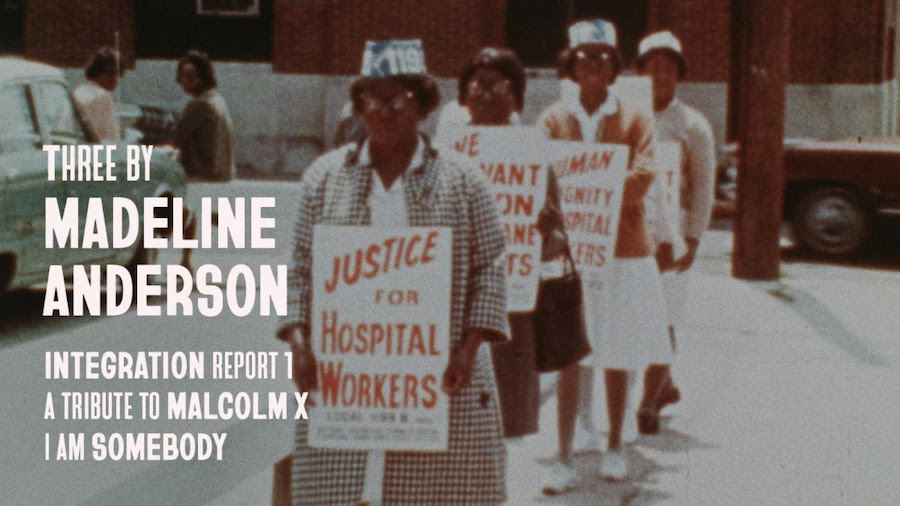
Three by Madeline Anderson
Recognized as the first Black woman to direct a televised documentary film, Madeline Anderson brings viewers to the front lines of the civil rights movement in these essential records of struggle and determination. Capturing a pivotal labor strike led by Black female hospital employees (I Am Somebody), early desegregation efforts by Martin Luther King Jr. (Integration Report 1), and a rare interview with Malcolm X’s widow, Dr. Betty Shabazz (A Tribute to Malcolm X), Anderson’s documentaries are a testament to the courage of the workers and activists at the heart of her films as well as to her own bravery, tenacity, and skill.
- Integration Report 1, 1960
- A Tribute to Malcolm X, 1967
- I Am Somebody, 1970
Thursday, February 4

Directed by Gordon Parks
Gordon Parks was a true Renaissance man. The first African American to direct a major Hollywood feature—the moving coming-of-age saga The Learning Tree—he was also a writer, composer, and brilliant photographer who created some of the most iconic images of his time, using his camera to expose poverty, struggle, and systemic racism in America. This tribute to Parks’s cinematic genius—including his chronicle of the life of legendary folk singer Lead Belly, his rendition of the Solomon Northup story (later the basis for Steve McQueen’s 12 Years a Slave), and his gorgeous autobiographical essay film Moments Without Proper Names—reveals a sensitive artist who brought passion and personal insight to his groundbreaking portrayals of the Black American experience across history.
- The Learning Tree, 1969
- Leadbelly, 1976
- Solomon Northup’s Odyssey, 1984
- Moments Without Proper Names, 1987
Friday, February 5
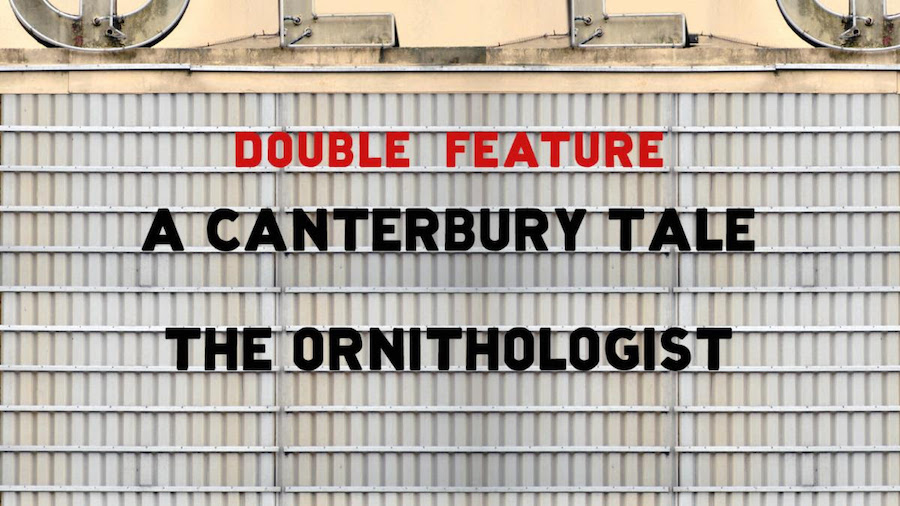
Double Feature: Come On Pilgrim
A Canterbury Tale and The Ornithologist
Two tales of pilgrimages—one a gentle bucolic lullaby, the other a delirious fusion of religious imagery and surreal eroticism—find transcendence in the modern world. Set amid the tumult of World War II, Michael Powell and Emeric Pressburger’s A Canterbury Tale unfolds as an eccentrically plotted update on the Chaucer poem, gathering a majestic lyrical power as it winds its way toward the fabled city. Then, Portuguese auteur João Pedro Rodrigues takes us on a mesmerizing metaphysical odyssey through sexual and spiritual realms in The Ornithologist, an audacious vision of enlightenment and transfiguration from one of contemporary cinema’s most daring, iconoclastic voices.
Saturday, February 6

Saturday Matinee: The Last Unicorn
The legendary animation company Rankin/Bass produced this cult-favorite fantasy featuring the voice talents of Mia Farrow, Christopher Lee, Jeff Bridges, Alan Arkin, and Angela Lansbury, in which a brave unicorn—fearing she may be the last of her kind—joins forces with a sorcerer to stop the villainous King Haggard from capturing her. Featuring striking visuals courtesy of Japan’s Topcraft animation studio (members of whom would go on to form the core of Studio Ghibli), The Last Unicorn is graced with moments of unexpected darkness and surrealism that make it one of the most captivating and unique children’s films of its era.
Sunday, February 7
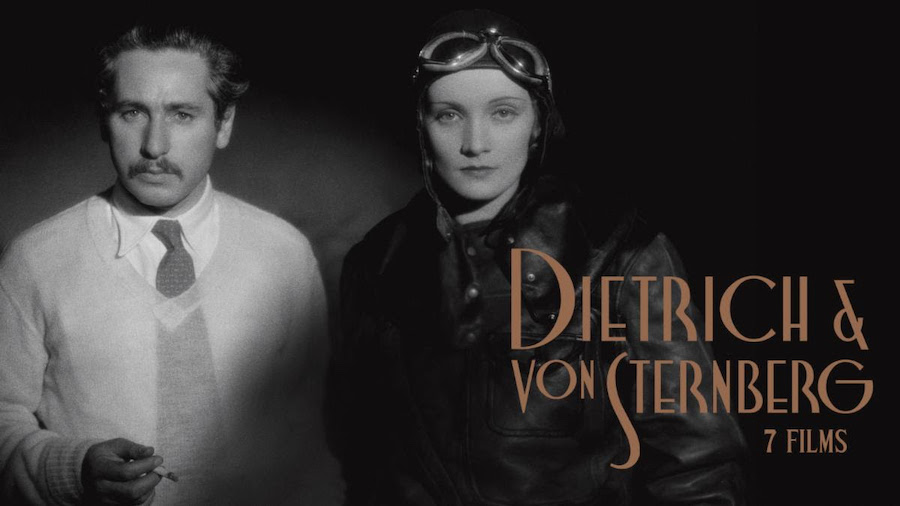
Marlene Dietrich & Josef von Sternberg
Tasked by studio executives with finding the next great screen siren, visionary Hollywood director Josef von Sternberg joined forces with rising German actor Marlene Dietrich, kicking off what would become one of the most legendary partnerships in cinema history. Over the course of the seven sumptuously stylized films they made together in the 1930s, the pair refined their shared fantasy of pleasure, beauty, and excess. Dietrich’s coolly transgressive mystique was a perfect match for the provocative roles von Sternberg cast her in—including a sultry chanteuse, a cunning spy, and the hedonistic Catherine the Great—and the filmmaker captured her allure with chiaroscuro lighting and opulent design, conjuring fever-dream visions of exotic settings from Morocco to Shanghai. Suffused with frank sexuality and worldly irony, these deliriously entertaining masterpieces are landmarks of cinematic artifice.
- The Blue Angel, 1930
- Morocco, 1930
- Dishonored, 1931
- Shanghai Express, 1932
- Blonde Venus, 1932
- The Scarlet Empress, 1934
- The Devil Is a Woman, 1935
Monday, February 8

Three Starring Lana Turner
A star whose name alone conjures the glamorous allure of dream-factory fantasy, Lana Turner was born one hundred years ago this February—but her legend began fifteen years later, when she was famously discovered at a Hollywood soda fountain, a fabled bit of Tinseltown lore that fueled the hopes of a thousand wannabe starlets. Though she began her career as a teenage ingenue, Turner blossomed into a vivid dramatic presence in classics like the sultry noir The Postman Always Rings Twice and Vincente Minnelli’s twisted Hollywood self-portrait The Bad and the Beautiful. That her on-screen image was often in sensational dialogue with her much-publicized, scandal-ridden personal life has only fueled the enduring fascination with Turner’s myth.
- The Postman Always Rings Twice, Tay Garnett, 1946
- A Life of Her Own, George Cukor, 1950
- The Bad and The Beautiful, Vincente Minnelli, 1952
Tuesday, February 9
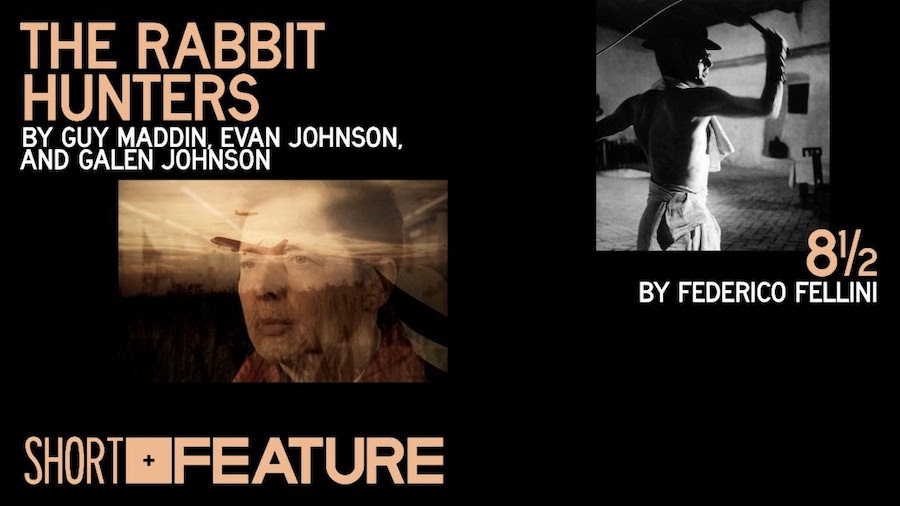
Short + Feature: Fellini of the Spirits
The Rabbit Hunters and 8½
One cinematic dream weaver pays homage to another in these shimmering, fantastical journeys through the unconscious mind. With his meta-cinematic landmark 8½, Federico Fellini fully embraced a delirious, stream-of-consciousness style in the autobiographical tale of a creatively frustrated film director. In his recent short The Rabbit Hunters, fellow surrealist Guy Maddin communes with the spirit of the Italian master—whose astral projection is played by Isabella Rossellini—while exploring his own obsessions with ghostly presences and dreamscapes.
Wednesday, February 10

Stories We Tell
Acclaimed actor and filmmaker Sarah Polley delves into the mysteries of her own family and identity—and uncovers a shocking secret—in this riveting, fearlessly personal autobiographical hybrid work. Interweaving interviews with family members and friends with Super 8 home movies, Polley crafts a slippery, multilayered investigation into family lore and the elusive nature of truth that continues to be a touchstone in the evolution of first-person documentary filmmaking.
Thursday, February 11
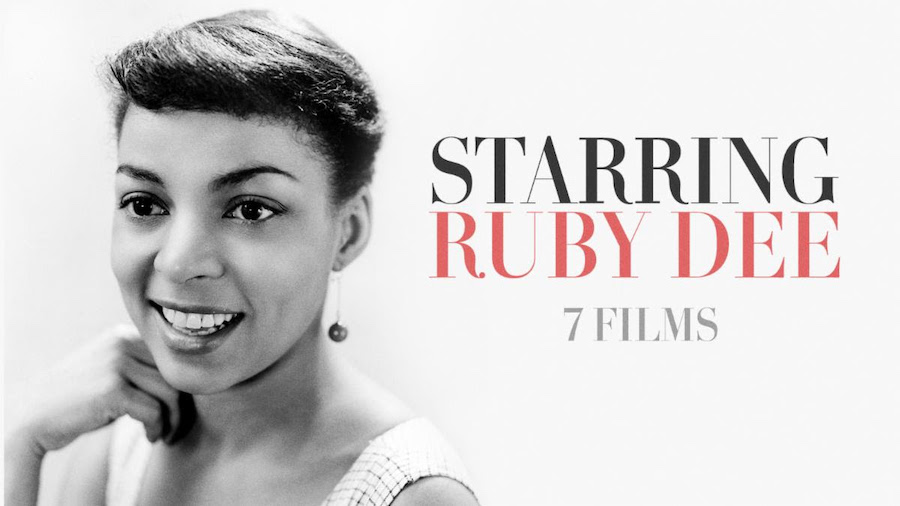
Starring Ruby Dee
Actor and activist Ruby Dee defied the prejudices and racist barriers of her time to forge a decades-long career at the forefront of both the civil rights movement and the evolving, increasingly nuanced representation of Black Americans on-screen. Emerging from Harlem’s American Negro Theater alongside fellow greats like Sidney Poitier and Harry Belafonte, Dee frequently combined her art and activism in studio films and passion projects alike, including Take a Giant Step, one of the first Hollywood movies to tackle systemic racism, and Uptight, a blistering portrait of the Black Power movement made in response to the assassination of Martin Luther King Jr.
- The Tall Target, Anthony Mann, 1951
- Edge of the City, Martin Ritt, 1957^
- St. Louis Blues, Allen Reisner, 1958
- Take a Giant Step, Philip Leacock, 1959
- The Balcony, Joseph Strick, 1963
- Uptight, Jules Dassin, 1968
- Buck and the Preacher, Sidney Poitier, 1972
^Available March 1
Friday, February 12

Double Feature: Cool Killers
Le samouraï and Ghost Dog: The Way of the Samurai
The hit-man thriller gets a shot of postmodern cool in a pair of stylish crime dramas built around solitary, zen heroes. A razor-sharp cocktail of 1940s American gangster cinema and Japanese lone-warrior mythology, Jean‑Pierre Melville’s Le samouraï features a career-defining performance from Alain Delon as a contract killer who lives according to his own moral code. Three decades later, Jim Jarmusch tipped his hat to Melville’s vision with Ghost Dog: The Way of the Samurai, a pop-culture-sampling cinematic mixtape that features an equally commanding performance from Forest Whitaker as a latter-day incarnation of Delon’s stoic assassin.
Saturday, February 13

Saturday Matinee: A Story of Children and Film
The world’s first movie about kids in global cinema is a passionate, poetic portrait of the adventures of childhood—its surrealism, loneliness, fun, destructiveness, and complexity—as seen through fifty-three films from twenty-five countries. Delving into classics like E.T. the Extra-Terrestrial, The Red Balloon, and Fanny and Alexander alongside dozens of unsung gems (many by women filmmakers) that are almost unknown, filmmaker, critic, and historian Mark Cousins (The Story of Film: An Odyssey) creates an engaging, eye-opening celebration of the magic of both childhood and the movies.
Sunday, February 14
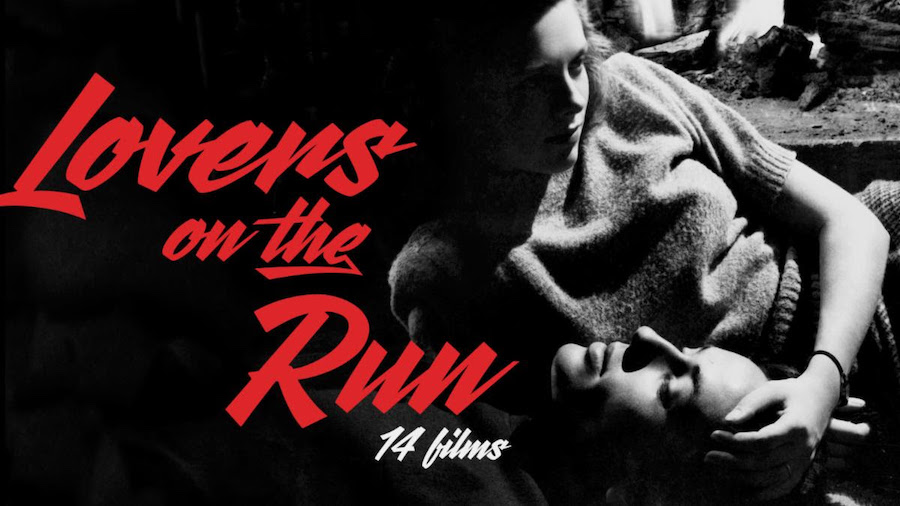
Lovers on the Run
Spice up your Valentine’s Day with a dash of danger. With its exhilarating blend of crime, romance, and fatalistic desire, the couple-on-the-lam premise has proven an irresistible lure to generations of filmmakers across genres and movements, from film noir (They Live by Night) to New Hollywood (Badlands) to the French New Wave (Pierrot le fou) to Blaxploitation (Thomasine & Bushrod) and beyond. Sexy, thrilling, and transgressive, these tales of amorous outlaws continue to seduce because they offer the ultimate romantic fantasy: a vision of lovers united against the world, living—and dying—according to their own rules.
- You Only Live Once, Fritz Lang, 1937
- They Live by Night, Nicholas Ray, 1948
- Gun Crazy, Joseph H. Lewis, 1950^
- Where Danger Lives, John Farrow, 1950
- Tomorrow Is Another Day, Felix E. Feist, 1951
- Pierrot le fou, Jean-Luc Godard, 1965
- The Honeymoon Killers, Leonard Kastle, 1970
- Badlands, Terrence Malick, 1973
- Thomasine and Bushrod, Gordon Parks Jr., 1974
- One False Move, Carl Franklin, 1992
- The Living End, Gregg Araki, 1992
- Deep Crimson, Arturo Ripstein, 1996
- Sun Don’t Shine, Amy Seimetz, 2012
- Ain’t Them Bodies Saints, David Lowery, 2013
^Available March 1
Monday, February 15
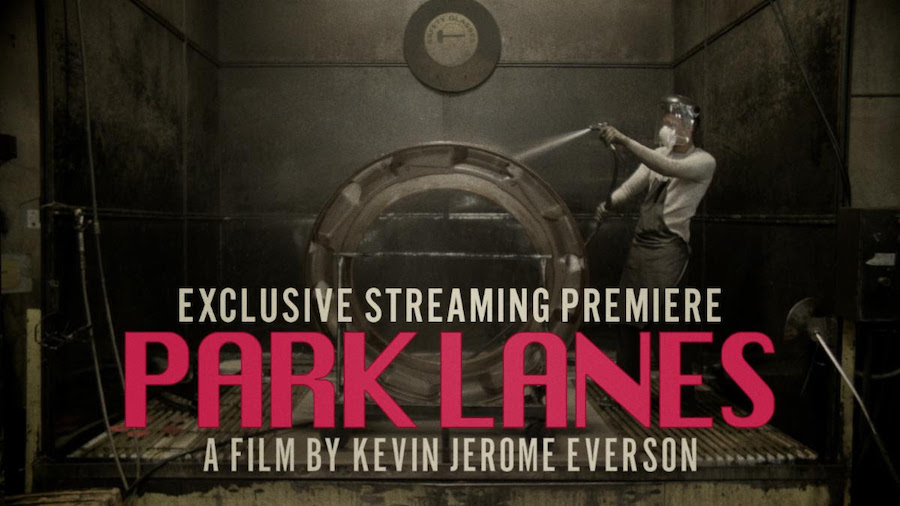
Park Lanes
Exclusive streaming premiere, featuring a new introduction by the filmmaker
Kevin Jerome Everson’s monument of durational cinema immerses viewers in the inner workings of a factory that produces bowling-alley equipment—a full eight-hour workday experienced in real time. Entrancing, meditative, and totally enveloping, Park Lanes unfolds according to the rhythms and rituals of the workers whose shifts it patiently documents, their quotidian tasks taking on a profound significance. The result is one of the most perceptive films ever made about labor and one of modern cinema’s most singular achievements.
Tuesday, February 16
Three Short Films by Ramin Bahrani
Contemporary American cinema’s foremost neorealist, Ramin Bahrani gave aching but lyrical expression to the experiences of outsiders and immigrants living on the margins of the American Dream in his acclaimed breakthrough features Man Push Cart and Chop Shop. This selection of shorts by Bahrani—including the wrenching family tragedy Blood Kin and the poignant ecological love story Plastic Bag (narrated by Werner Herzog)—display the unwavering humanism and eye for images of everyday poetry that have made Bahrani such a vital cinematic voice.
- Plastic Bag, 2009
- Lift You Up, 2014
- Blood Kin, 2018
Wednesday, February 17
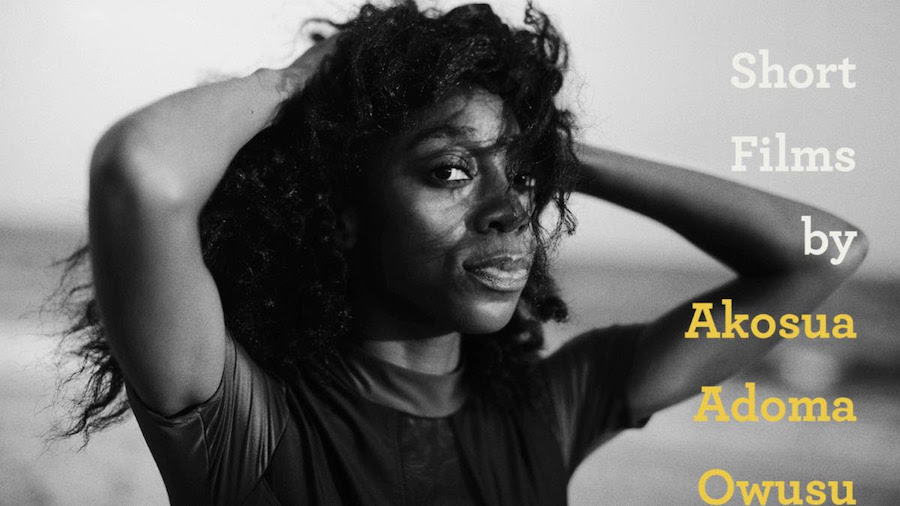
Short Films by Akosua Adoma Owusu
Featuring a new introduction by the filmmaker
Playful, funny, and brilliantly subversive, the films of Akosua Adoma Owusu use her identity as a Ghanaian American as a jumping-off point to explore the nuances of race, sexuality, and nationality in both the United States and Africa. Blurring the boundaries of experimental, narrative, and documentary filmmaking, her stylistically freewheeling shorts—including award-winning works like Me broni ba, Drexciya, Kwaku Ananse, and Reluctantly Queer—address racism, postcolonialism, and white supremacy. The results are bold, often startling statements that open up what Owusu calls a “third cinematic space” between her Ghanaian and American consciousnesses: a realm where she is free to play, explore, and challenge what it means to exist at the intersection of multiple identities.
- Ajube Kete, 2005
- Tea 4 Two, 2006
- Intermittent Delight, 2007
- Boyant, 2008
- Me broni ba, 2009
- Drexciya, 2010
- Split Ends, I Feel Wonderful, 2012
- Kwaku Ananse, 2013
- Bus Nut, 2015
- Reluctantly Queer, 2016
- Mahogany Too, 2018
- On Monday of Last Week, 2018
- Pelourinho: They Don’t Really Care About Us, 2019
Thursday, February 18
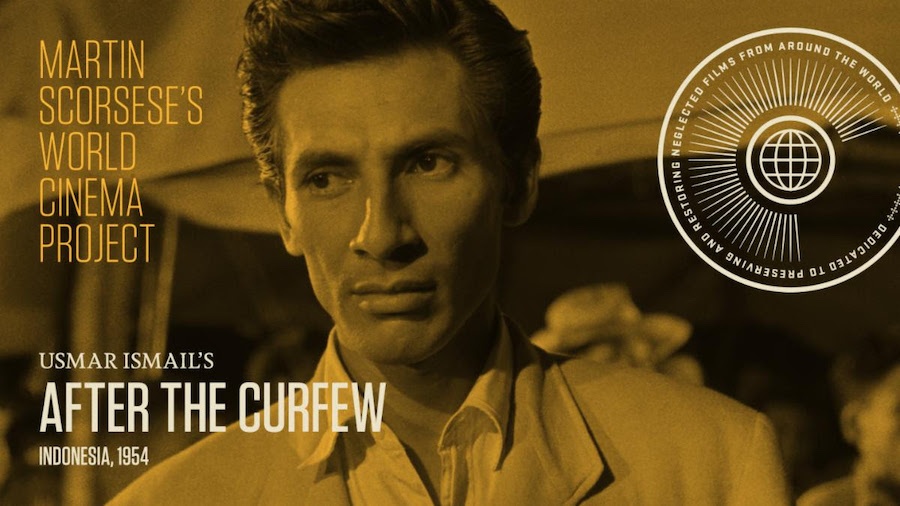
Martin Scorsese’s World Cinema Project: After the Curfew
Giving voice to the anguish of a nation fighting for its soul, Usmar Ismail’s After the Curfew follows the descent into disillusionment of a former freedom fighter who is unable to readjust to civilian life following the revolution that gave Indonesia its independence from the Netherlands. Steeped in moody atmospherics and psychological tension, the film struck its national cinema like a bolt of lightning, illuminating on-screen, for the first time and with unflinching realism, the emotional toll of Indonesian society’s postcolonial struggles.
Friday, February 19

Double Feature: Oh My Godfrey!
Watermelon Man and Cotton Comes to Harlem
Comedy great Godfrey Cambridge stars in a pair of groundbreaking 1970 releases from pioneering Black filmmakers Melvin Van Peebles and Ossie Davis. Inspired by Franz Kafka’s The Metamorphosis, Van Peebles’s subversive satire Watermelon Man casts Cambridge as a bigoted white suburbanite who one day wakes up to discover he’s been transformed into a Black man. It’s paired with the film that helped kickstart the Blaxploitation movement, Cotton Comes to Harlem, a rollicking neonoir comedy adapted from Chester Himes’s novel of the same name in which Cambridge plays a New York City detective investigating a con-man preacher.
Saturday, February 20

Journey to the Beginning of Time
A beguiling mix of natural history and science fiction, this early feature by Karel Zeman follows four schoolboys on an awe-inspiring expedition back through time, where they behold landscapes and creatures that have long since vanished from the earth. Hewing closely to the scientific knowledge of its era, Journey to the Beginning of Time brings its prehistoric beasts alive through a number of innovative techniques—including stop-motion, puppetry, and life-size models—creating an atmosphere of pure wonderment.
Sunday, February 21
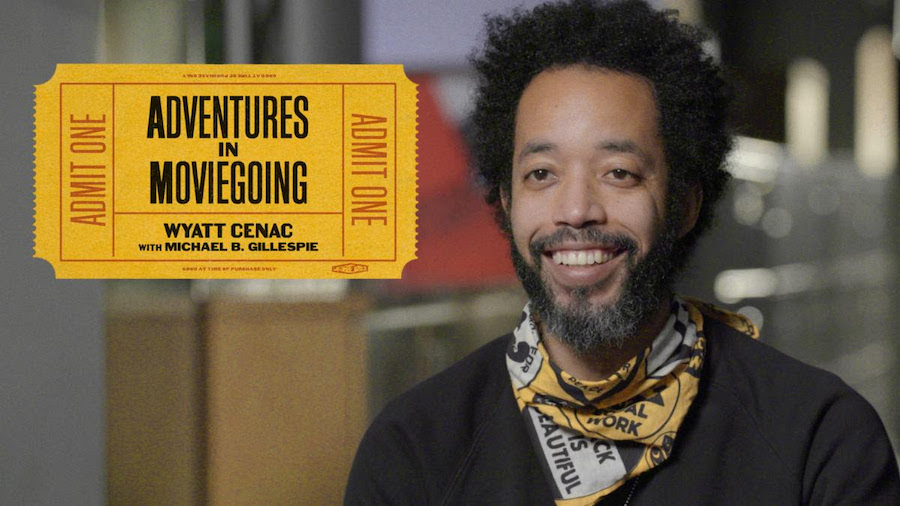
Wyatt Cenac’s Adventures in Moviegoing
A former writer and correspondent for The Daily Show, the star of Barry Jenkins’s first feature Medicine for Melancholy, and the producer and host of the HBO series Wyatt Cenac’s Problem Areas, comedian and actor Wyatt Cenac is also a passionate cinephile who, unsurprisingly, has strong insights into what makes for good screen comedy. In this edition of Adventures in Moviegoing, Cenac sits down with film scholar Michael B. Gillespie to discuss his selection of favorites, which include button-pushing racial satires from Spike Lee and Robert Downey Sr., graceful cinematic charades by Jacques Tati, and trailblazing works by Ousmane Sembène and Horace Ové.
Features
- All Night Long, Basil Dearden, 1962
- Playtime, Jacques Tati, 1967
- Putney Swope, Robert Downey Sr., 1969
- Trafic, Jacques Tati, 1971
- Pressure, Horace Ové, 1976
- Mur Murs, Agnès Varda, 1981
- Bamboozled, Spike Lee, 2000
- In the Mood for Love, Wong Kar Wai, 2000
Shorts
- Borom sarret, Ousmane Sembène, 1963
Monday, February 22

Nationtime
Exclusive streaming premiere
Best known for his avant-garde meta-documentary Symbiopsychotaxiplasm, William Greaves was also the director of over one hundred documentary films, the majority focused on African American history, politics, and culture. Nationtime is a report on the National Black Political Convention held in Gary, Indiana, in 1972, a historic event that gathered Black voices from across the political spectrum, among them Jesse Jackson, Dick Gregory, Coretta Scott King, Dr. Betty Shabazz, Richard Hatcher, Amiri Baraka, Charles Diggs, Isaac Hayes, Richard Roundtree, and H. Carl McCall. Narrated by Sidney Poitier and Harry Belafonte, the film was considered too militant for television broadcast at the time and has since circulated only in an edited fifty-eight-minute version. This new restoration from IndieCollect returns an essential cultural document to its original eighty-minute length and visual quality.
Tuesday, February 23

Black Fire
Featuring a new introduction by the filmmakers
Made as part of an ongoing collaboration between experimental filmmaker Kevin Jerome Everson, historian Claudrena N. Harold, and the students and alumni of the University of Virginia, these unclassifiable, poetic short films explore the ways in which Black students have transformed the university—politically, socially, culturally, and intellectually—from the 1960s through the present. Creatively employing reenactment, interviews, music, and performance, Everson and Harold pay tribute to the unsung trailblazers who paved the way for greater equality on the UVA campus while bringing the university’s history of racial and social struggle into dialogue with the present.
Shorts
- Sugarcoated Arsenic, 2014
- We Demand, 2016
- Fastest Man in the State, 2017
- How Can I Ever Be Late, 2017
- Black Bus Stop, 2019
Wednesday, February 24
Directed by Nina Menkes
Featuring a new introduction by the filmmaker
One of American independent cinema’s most sui generis voices, Nina Menkes doesn’t so much direct films as, in her own words, “conjure” them. Imbued with a trancelike power, her cinematic spells combine surrealist imagery that has been compared to David Lynch’s with the hypnotic formal rigor of Chantal Akerman to create a wholly original film language, through which she explores themes of alienation, violence, sexuality, and the search for a nonpatriarchal spirituality. Featuring the recently restored 1990s landmark Queen of Diamonds—a glimmering hallucination set on the margins of Las Vegas—these selections from Menkes’s potent body of work reveal an uncompromising artist who gives radical form to the raw materials of her unconscious.
Features
- Queen of Diamonds, 1991
- Phantom Love, 2007
- Dissolution, 2010
Shorts
- The Great Sadness of Zohara, 1983
Thursday, February 25
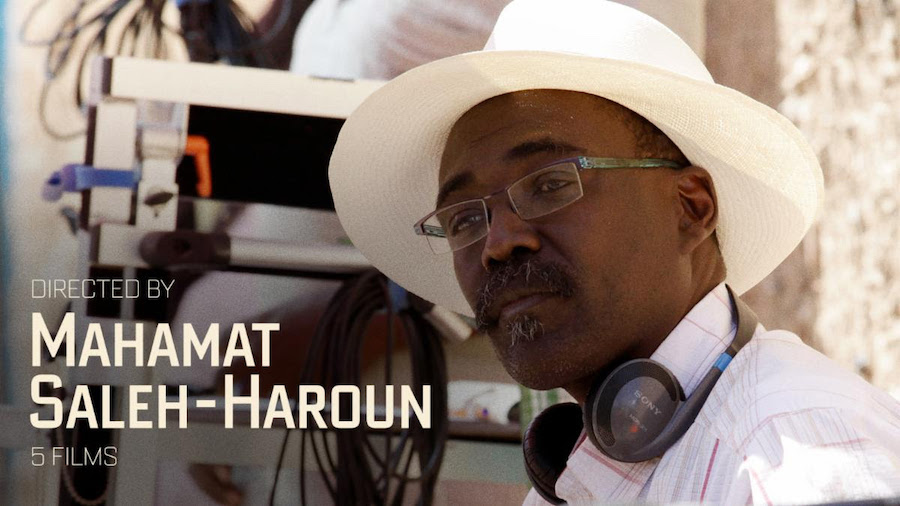
Directed by Mahamat-Saleh Haroun
Featuring a new introduction by the filmmaker
Though they speak quietly, the films of Mahamat-Saleh Haroun register with devastating emotional force. The acclaimed auteur has lived in France since 1982, but most of his films are set in his native Chad, a country whose turbulent history of civil war provides the backdrop to deeply empathetic human dramas like Daratt and the Cannes Jury Prize–winning A Screaming Man. Stylistically restrained but loaded with complex moral and political themes, Haroun’s films confront questions of individual, familial, and national responsibility with unerring compassion and profound personal insight.
- Abouna, 2002
- Daratt, 2006
- A Screaming Man, 2010
- Grigris, 2013
- A Season in France, 2017
Friday, February 26

Double Feature: The Holy Trintignant
The Conformist and Z
Coolly enigmatic French screen icon Jean-Louis Trintignant delivers two of his most acclaimed performances in these politically charged masterpieces. First, he’s the titular fascist flunky—a member of Mussolini’s secret police on a mission to assassinate his former mentor—in Bernardo Bertolucci’s The Conformist, a visually stunning psychosexual thriller awash in 1930s Deco decadence. Then, Trintignant is once again embroiled in political intrigue in Costa-Gavras’s electrifying international sensation Z, in which he plays the tenacious magistrate determined to uncover the truth behind the murder of a prominent leftist.
Saturday, February 27
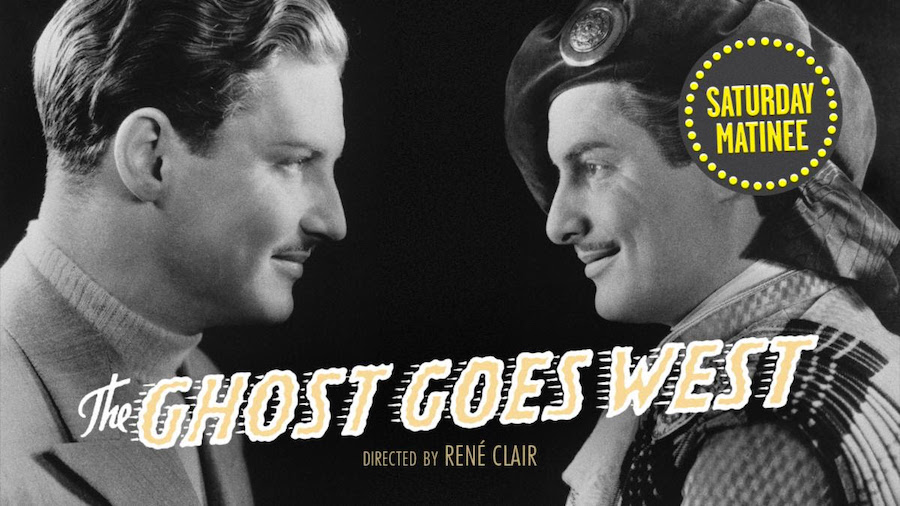
Saturday Matinee: The Ghost Goes West
An old-world ghost gets a taste of new-world values in this sly supernatural satire. When an ancient Scottish castle is taken down and moved to Florida to be rebuilt brick by brick, the new American owners discovers that the kilt-sporting eighteenth-century spirit (Robert Donat) who haunts it has made the trip as well. Making his English-language debut, French fantasist René Clair brings his customary charm and invention to this sparkling tale of culture clash from beyond the grave.
Sunday, February 28

Directed by Guy Maddin
Featuring a new conversation between Maddin and critic Robert Enright
The language of cinema’s past lives on in the films of Guy Maddin, the renegade surrealist of Winnipeg, Manitoba, whose sixty-fifth birthday we’re celebrating with this tour through his singular filmography. Meticulously recreating the aesthetics of silent and expressionist cinema in order to stage delirious visions of his own dreams, fantasies, and obsessions, Maddin’s films are by turns hallucinatory, warped, unsettling, and hilarious. This selection of the wildly prolific auteur’s numerous shorts and features—including the demented Alpine melodrama Careful, the autobiographical docu-fantasia My Winnipeg, and the epic “lost film” phantasmagoria The Forbidden Room—is a testament to cinema’s uncanny power to make manifest our deepest and darkest inner worlds.
Features
- Archangel, Guy Maddin, 1990
- Careful, Guy Maddin, 1992
- Dracula: Pages from a Virgin’s Diary, Guy Maddin, 2002
- Cowards Bend the Knee, Guy Maddin, 2003
- The Saddest Music in the World, Guy Maddin 2003
- My Winnipeg, Guy Maddin, 2007
- The Forbidden Room, Guy Maddin and Evan Johnson, 2015
Shorts
- My Dad Is 100 Years Old, Guy Maddin, 2005
- Glorious, Guy Maddin, 2008
- Spanky: To the Pier and Back, Guy Maddin, 2008
- How to Take a Bath, Guy Maddin, 2009
- Night Mayor, Guy Maddin, 2009
- Sinclair, Guy Maddin, 2010
- Louis Riel for Dinner, Guy Maddin, 2012
- Only Dream Things, 2012
- The Hall Runner, Guy Maddin, 2014
- Lines of the Hand, Guy Maddin, 2015
- The Green Fog, Guy Maddin, Evan Johnson, and Galen Johnson, 2017
- Accidence, Guy Maddin, Evan Johnson, and Galen Johnson, 2018
- The Rabbit Hunters, Guy Maddin, Evan Johnson, and Galen Johnson, 2020
- Stump the Guesser, Guy Maddin, Evan Johnson, and Galen Johnson, 2020
Plus: Now Playing in 30 Years of The Film Foundation
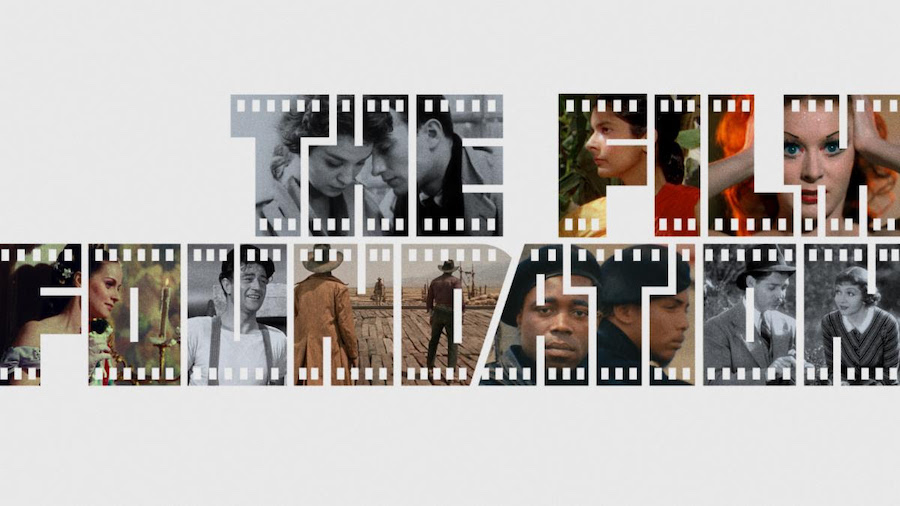
In November, we kicked off our thirtieth-anniversary celebration for film-preservation powerhouse The Film Foundation, founded by Martin Scorsese in 1990. This month, the lineup welcomes three restored gems: Frank Borzage’s swooning Ernest Hemingway adaptation A Farewell to Arms, Robert Downey Sr.’s riotous satire Putney Swope, and Nina Menkes’s Las Vegas–set dream vision Queen of Diamonds.
- A Farewell to Arms, Frank Borzage, 1932
- Putney Swope, Robert Downey Sr., 1969
- Queen of Diamonds, Nina Menkes, 1991
Complete list of films premiering on the Criterion Channel this month:
- Abouna, Mahamat Saleh-Haroun, 2002
- Accidence, Guy Maddin, Evan Johnson, and Galen Johnson, 2018
- After the Curfew, Usmar Ismail, 1954
- Ain’t Them Bodies Saints, David Lowery, 2013
- Ajube Kete, Akosua Adoma Owusu, 2005
- Archangel, Guy Maddin, 1990^
- The Bad and the Beautiful, Vincente Minnelli, 1952
- The Balcony, Joseph Strick, 1963
- Bamboozled, Spike Lee, 2000
- Band of Outsiders, Jean-Luc Godard, 1964
- Black Bus Stop, Akosua Adoma Owusu, 2019
- Blonde Venus, Josef von Sternberg, 1932
- Blood Kin, Ramin Bahrani, 2018
- The Blue Angel, Josef von Sternberg, 1930
- Boyant, Akosua Adoma Owusu, 2008
- Buck and the Preacher, Sidney Poitier, 1972
- Bus Nut, Akosua Adoma Owusu, 2014
- Careful, Guy Maddin, 1992^
- Celebration, Olivier Meyrou, 2007
- The Conformist, Bernardo Bertolucci, 1970
- Cotton Comes to Harlem, Ossie Davis, 1970
- Cowards Bend the Knee, Guy Maddin, 2003^
- Daratt, Mahamat-Saleh Haroun, 2006
- The Devil Is a Woman, Josef von Sternberg, 1935
- Dishonored, Josef von Sternberg, 1931
- Dissolution, Nina Menkes, 2010
- Dracula: Pages from a Virgin’s Diary, Guy Maddin, 2002^
- Drexciya, Akosua Adoma Owusu, 2010
- A Farewell to Arms, Frank Borzage, 1932
- Fastest Man in the State, Claudrena N. Harold and Kevin Jerome Everson, 2017
- The Forbidden Room, Guy Maddin, Evan Johnson, 2015
- Ghost Dog: The Way of the Samurai, Jim Jarmusch, 1999
- Glorious, Guy Maddin, 2008
- The Great Sadness of Zohara, Nina Menkes, 1983
- The Green Fog, Guy Maddin, Evan Johnson, and Galen Johnson, 2017
- Grigris, Mahamat Saleh Haroun, 2013
- How Can I Ever Be Late, Claudrena N. Harold and Kevin Jerome Everson, 2017
- How to Take a Bath, Guy Maddin, 2009
- I Am Somebody, Madeline Anderson, 1970
- Integration Report 1, Madeline Anderson, 1960
- Intermittent Delight, Akosua Adoma Owusu, 2007
- The Killing Floor, Bill Duke, 1984
- Kwaku Ananse, Akosua Adoma Owusu, 2013
- The Last Unicorn, Arthur Rankin, Jr. and Jules Bass, 1982
- Leadbelly, Gordon Parks, 1976
- The Learning Tree, Gordon Parks, 1969
- A Life of Her Own, George Cukor, 1950
- Lift You Up, Ramin Bahrani, 2014
- Lines of the Hand, Guy Maddin, Galen Johnson, and Evan Johnson, 2015
- The Living End, Gregg Araki, 1992
- Mahogany Too, Akosua Adoma Owusu, 2018
- Me broni ba, Akosua Adoma Owusu, 2009
- Moments Without Proper Names, Gordon Parks, 1986
- Morocco, Josef von Sternberg, 1930
- My Dad Is 100 Years Old, Guy Maddin, 2005
- Nationtime, William Greaves, 1972
- On Monday of Last Week, Akosua Adoma Owusu, 2017
- One False Move, Carl Franklin, 1992
- Park Lanes, Kevin Jerome Everson, 2015
- Pelourinho: They Don’t Really Care About Us, Akosua Adoma Owusu, 2019
- Phantom Love, Nina Menkes, 2007
- Pierrot le fou, Jean-Luc Godard, 1965
- Plastic Bag, Ramin Bahrani, 2009
- The Postman Always Rings Twice, Tay Garnett, 1946
- Pressure, Horace Ové, 1976
- Putney Swope, Robert Downey Sr., 1969
- Queen of Diamonds, Nina Menkes, 1991
- The Rabbit Hunters, Guy Maddin, Evan Johnson, and Galen Johnson,2020
- Reluctantly Queer, Akosua Adoma Owusu, 2016
- La ronde, Max Ophüls, 1950
- The Saddest Music in the World, Guy Maddin, 2003
- The Scarlet Empress, Josef von Sternberg, 1934
- A Screaming Man, Mahamat-Saleh Haroun, 2010
- A Season in France, Mahamat-Saleh Haroun, 2017
- Shanghai Express, Josef von Sternberg, 1932
- Solomon Northup’s Odyssey, Gordon Parks, 1984
- Split Ends, I Feel Wonderful, Akosua Adoma Owusu, 2012
- St. Louis Blues, Allen Reisner, 1958
- Stories We Tell, Sarah Polley, 2012
- A Story of Children and Film, Mark Cousins, 2013
- Stump the Guesser, Guy Maddin, Evan Johnson and Galen Johnson, 2020
- Sugarcoated Arsenic, Claudrena N. Harold and Kevin Jerome Everson, 2014
- Take a Giant Step, Philip Leacock, 1959
- The Tall Target, Anthony Mann, 1951
- Tea 4 Two, Akosua Adoma Owusu, 2006
- They Live by Night, Nicolas Ray, 1948
- Thomasine and Bushrod, Gordon Parks, Jr., 1974
- A Tribute to Malcolm X, Madeline Anderson, 1967
- Tomorrow Is Another Day, Felix E. Feist, 1951
- Uptight, Jules Dassin, 1968
- Watermelon Man, Melvin Van Peebles, 1970
- We Demand, Claudrena N. Harold and Kevin Jerome Everson, 2016
- Where Danger Lives, John Farrow, 1950
- You Only Live Once, Fritz Lang, 1937
^Available in the U.S. only


